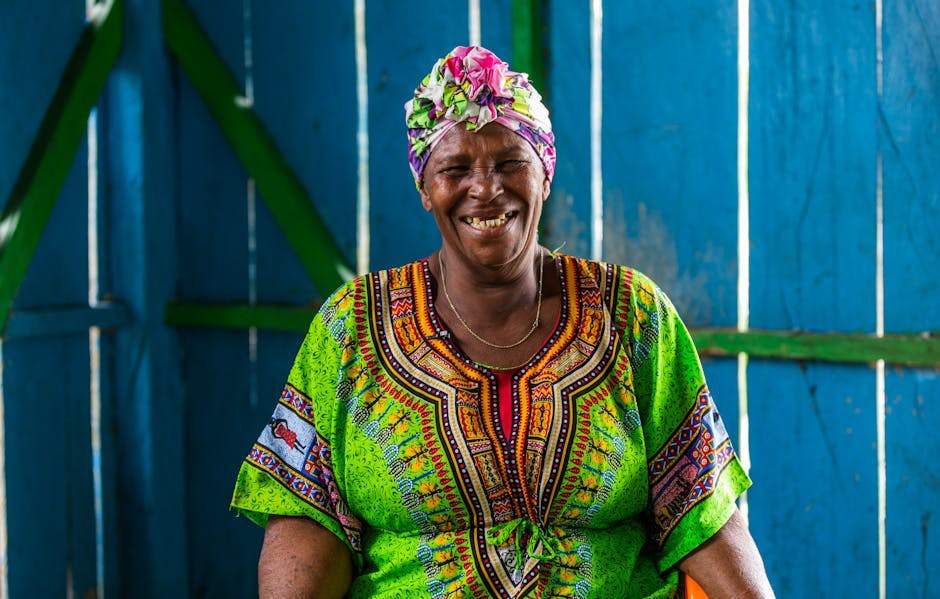He crossed a line, you walked away, and now you’re torn between self-protection and curiosity about what might still be possible. Deciding whether to offer a second chance is never a tidy calculation – it is a layered assessment of trust, safety, accountability, and whether both of you are truly ready to build something healthier than before. This guide reframes the big question into smaller ones so you can evaluate a second chance with clarity rather than impulse.
When endings are healthy – and why that matters
Not every love story is meant to loop back on itself. Some relationships end after honest reflection, mutual respect, and a recognition that your long-term goals simply don’t align. That kind of goodbye can feel strangely haunting because there is little drama to drown out the doubt. Even so, a peaceful ending is often the most compassionate outcome. If the breakup arose from clear values differences, incompatible lifestyles, or a shared realization that affection wasn’t enough, offering a second chance may only stall the inevitable. A kind ending is still an ending – and reopening it without new information can undermine your peace.
It also helps to name the emotional fog that follows a calm separation. You might miss routines, inside jokes, and the familiarity of being known. Nostalgia can masquerade as evidence that a second chance is wise. Before you revisit the relationship, ask whether you are missing the person or missing the pattern. If the pattern is what you crave, a second chance won’t solve the deeper need for comfort and stability – needs you can meet in ways that do not risk your well-being.

How to frame the decision
Instead of asking, “Should I go back?” try a sequence that emphasizes safety and growth: Is it safe to reconnect? Is he accountable without defensiveness? Are your core needs compatible now – not hypothetically later? Has there been observable change, not just persuasive words? Finally, do you genuinely want a second chance for your own reasons, not because pressure, fear, or loneliness is steering the wheel?
Keep in mind that a second chance is not a gift you hand over unconditionally. It is a structured opportunity to demonstrate new behavior over time. Treat it like a trial period with boundaries, not a reset to the past.
When a second chance can be reasonable
-
There was a true misunderstanding, now fully clarified. Breakups sometimes spark from missing context – a half-heard story, a misread message, a conclusion reached during a heated moment. If additional facts show the original assumption was wrong, a second chance can be a proportional response. Clarity must be verifiable, not wishful thinking. He should be able to explain what happened plainly and acknowledge how the misunderstanding affected you without minimizing it. If the explanation holds up, a second chance may simply be a return to reality with better communication.

-
The behavior that hurt you is specific and fixable. Some issues are skills gaps – time management, emotional unavailability rooted in poor communication, defensiveness during conflict. Skills can improve with consistent practice. If he names the behavior, outlines how he is changing it, and accepts feedback, a second chance can test those improvements. Focus on actions: calendars used, therapy attended, listening habits tracked. Treat the second chance as a behavior lab – observe whether the new habits persist when stress rises.
-
His apology is unambiguous and accountable. A real apology centers the harm, not the intent. It sounds like, “I did X. It hurt you in Y way. I understand Z impact. Here is how I am repairing it.” It does not sound like, “I’m sorry you feel that way,” or “I wouldn’t have done it if you hadn’t….” If you hear ownership without blame-shifting, and if repair efforts match the size of the hurt, a second chance can be considered. Words open the door – follow-through keeps it open.
-
Timing – not character – was the barrier. Occasionally the relationship faltered because of life collisions: demanding travel, mismatched schedules, a move, or competing obligations that made closeness hard to maintain. If circumstances have meaningfully changed and both of you are in steadier seasons, a second chance can test whether connection flourishes without the old friction. The distinction matters: timing is external; character is internal. A second chance makes sense only if external chaos – not recurring disrespect – was the core issue.

-
You genuinely want reconciliation for yourself. Desire born from pressure rarely sustains growth. If your motivation is internal – you still see a future, you feel emotionally safe, and your boundaries are respected – a second chance may be aligned with your values. Before you say yes, check whether the idea energizes you rather than drains you. Your body often tells the truth first.
When a second chance risks repeating harm
-
The root reasons are not fixable. Divergent core values, incompatible visions for family or money, or persistent life goals that clash will not soften just because affection returns. If you already compromised on essentials and felt yourself shrinking, a second chance may recreate the same slow erosion – only faster, because the blueprint is familiar.
-
He keeps blaming you. If every conversation spirals into your supposed flaws while he refuses to own his choices, a second chance becomes a revolving door for guilt. Accountability is binary – either present or absent. Without it, repair cannot take root.
-
Your self-esteem tanked while you were together. Love should strengthen your sense of self. If you lived on eggshells, measured your words to avoid explosions, or felt smaller every month, the dynamic was harmful even if he “didn’t mean it.” A second chance here often rewards behavior that needs to stop, not restart.
-
Mistreatment or disrespect were patterns. Repeated contempt, stonewalling, cruel jokes at your expense, or boundary violations are not quirks – they are warning signs. If he had daily chances to treat you well and did not, a second chance is likely to deliver the same pattern with a nicer preface.
The cheating dilemma: questions that bring nuance
Infidelity is a charged subject because it mixes betrayal, grief, and the shattering of assumed safety. For some, it is an automatic no – non-negotiable. For others, context matters. If you are weighing a second chance after cheating, slow the process and evaluate the specifics with precision.
Factors to examine before any reconciliation
-
Scope of the betrayal. Cheating is not a single category – it ranges from secret texting and flirtation to physical encounters and parallel relationships. The scope influences whether trust can be rebuilt. Bigger breaches require longer timelines and tighter guardrails if a second chance is even possible.
-
Emotional versus physical involvement. Emotional affairs cut deeply because intimacy moved outside the relationship; physical encounters may be shorter but still destabilizing. If it remained emotional and stopped before becoming physical, you may be able to address the unmet needs that left space for the connection – without excusing the behavior. A second chance here still depends on accountability, transparency, and boundaries.
-
Pattern or one-time event. A single lapse is not the same as a sustained pattern. Patterns point to entitlement, secrecy systems, or a refusal to self-regulate – dynamics that make a second chance far riskier. If he can document that it was isolated and has taken robust steps to prevent recurrence, you can evaluate whether the risk matches your tolerance.
-
Feelings for the other person. If affection or attachment developed, the triangle remains active even after contact ends. A second chance cannot compete with unresolved longing. If there are no feelings and the other connection has been fully closed, the conditions are less volatile – not safe, but simpler to assess.
-
Remorse that is felt, not performed. Real remorse shows up as discomfort with one’s own choices, not just distress about consequences. You’ll notice proactive transparency – offering phone access, sharing schedules, volunteering information – without you asking repeatedly. If remorse is genuine, a second chance may be considered after boundaries are negotiated.
-
Full responsibility. Excuses like “We weren’t intimate enough” translate to blame. Owning the breach means acknowledging that other solutions existed – conversation, counseling, separation – and choosing betrayal anyway. Without this clarity, a second chance only teaches that deflection succeeds.
-
Sustained behavior change. Apologies are momentary; change is measurable. Look for consistent transparency, repaired routines, and willingness to co-create agreements that protect the relationship. If his actions stay steady through stress, a second chance has sturdier footing.
-
Openness to therapy. Outside support can help you rebuild trust, process grief, and design guardrails. If he embraces counseling – not as punishment but as growth – a second chance can unfold with professional structure rather than wishful thinking.
Designing the trial period of reconciliation
If you choose to proceed, treat the next stage as an intentional container – a defined span in which both of you practice new habits and measure how it feels. A second chance should never mean ignoring your intuition. Build in checkpoints and clarity so hope and realism can coexist.
Set unmistakable boundaries – what transparency looks like, which topics require immediate honesty, what behaviors end the experiment. Put these agreements in writing so there is no debate later.
Create a communication rhythm – weekly debriefs about how each of you feels, what worked, and where tension appeared. Use “I” statements, reflect back what you heard, and pause when emotions flood the conversation.
Measure change, not promises – track behavior across ordinary days and stressful ones. If change vanishes when stakes rise, the second chance is only cosmetic.
Protect your support system – keep trusted friends or a counselor in the loop. Isolation makes it easier to rationalize red flags; connection keeps you grounded.
Define consequences – clarity is kindness. If boundary A is broken, consequence B follows. A second chance without consequences is an invitation to repeat the past.
Throughout this period, repeat the phrase to yourself: a second chance is earned in practice, not requested in speeches. When doubt surfaces – and it will – return to the evidence. Are you calmer in your body? Are conflicts shorter and kinder? Do your needs get named and met? If the answers trend positive over time, the second chance is doing its job. If you keep feeling unsettled, the data is also speaking.
Red flags during the comeback
Even with careful planning, certain behaviors signal that the past is attempting a sequel. If you notice these, pause the process immediately.
Charm instead of change – grand gestures, gifts, or sweeping promises that distract from daily accountability. A second chance relies on the boring consistency of respect, not fireworks.
Data hiding – reluctance to discuss whereabouts, deleting messages, or “forgot to mention” stories. Opacity is incompatible with a second chance because trust requires light.
Pressure to rush – demands that you “just move on” before trust has rebuilt. Healing has a tempo; a second chance honors the slow parts.
Contempt – eye-rolling, mockery, or cruel sarcasm during disagreements. Contempt corrodes connection faster than almost anything. If it reappears, the second chance is already failing.
Self-check: what you need from yourself
Your agency matters as much as his efforts. Before you offer a second chance, ask yourself whether you can let the past inform you without letting it haunt you. If you find yourself scanning constantly for danger, that may be your wisdom saying the container isn’t safe. It is also fair to decide you are unwilling to do the heavy work of rebuilding – that does not make you unforgiving; it makes you protective of your future.
Another internal checkpoint: are you prepared to enforce boundaries? A second chance without self-respect is a revolving door. Decide now which actions would end the attempt, and trust yourself to carry through. Your consistency is a form of self-care.
Practical scripts for hard moments
Sometimes you know what you want to say but not how to say it. Here are sample phrases you can adapt when discussing a second chance:
“I’m open to a second chance with clear agreements. Here’s what I need to feel safe, and here’s how we’ll revisit this in six weeks.”
“I hear your apology. For a second chance to be meaningful, I’ll need consistent transparency and patience with my healing process.”
“I’m not ready for a second chance. The issues we faced are about compatibility, not timing, and I won’t renegotiate my core values.”
“I won’t accept a second chance while blame is part of your language. Accountability must come first.”
If you choose not to return
Declining to reopen the relationship is a complete sentence. You can honor what was good while protecting what you need now. Closure can look like a brief conversation, a final message that states your decision, or simply stepping back without further debate. Choosing yourself is not punitive – it is a boundary that keeps space open for the life you want. In this case, the phrase second chance can shift meaning: you are offering that second chance to your own heart, dedicating energy to healing, friendships, creativity, and future love that treats you with integrity.
Do second chances work?
Outcomes vary because people vary. Some partners absorb the lesson so deeply that their behavior realigns long-term. Others improve for a short season, then drift toward old habits once vigilance fades. You cannot control which category he will occupy – but you can control the process you require before granting a second chance, the pace you move at, and the boundaries you keep.
If you proceed, make your decision reversible – that is, tie the continuation of the second chance to clear milestones. If the milestones are met and you feel increasingly secure, keep going. If not, end the attempt with the same self-respect you began it with. Whether you stay or step away, the point is the same: your well-being is the compass. A second chance is successful only if it protects that north star.